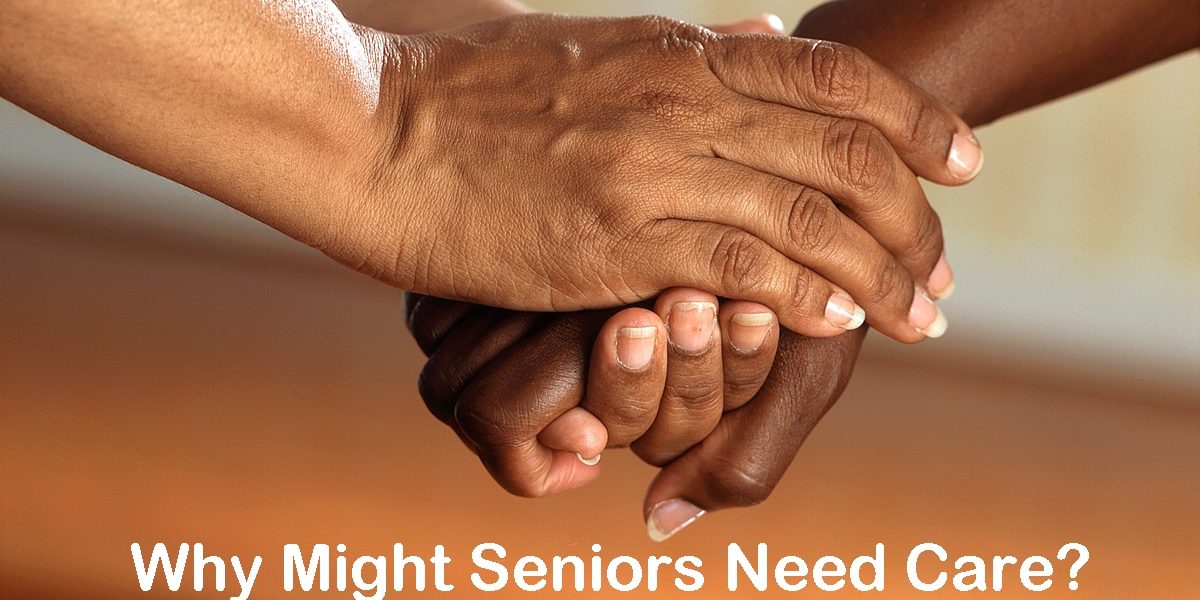Being a caregiver in a healthcare facility means taking care of another person— caring for their physical health and emotional well-being with compassion, respect and dignity. The amount of care a resident needs depends on his/her ability to perform routine daily tasks independently. Some people may just require extra help with daily activities such as personal care, shopping, meal preparation and other household tasks. Whereas others may need more help due to changes in cognitive function or mobility issues. Here we discuss some of the common reasons why seniors depend on assistance in their living situations:
- Memory loss: Many seniors experience short-term memory loss. However, the severe memory loss that is associated with dementia may make it unsafe for the senior to live alone anymore. The disorder affects a person’s ability to remember and think properly. As the disorder progresses, the person can’t perform even the most basic tasks such as bathing, eating and using the bathroom. There are many long-term care facilities such as residences designed to care for residents suffering from Alzheimer’s disease or other memory loss. For caregivers and care home managers providing dementia care, here’s a useful read on streamlining medication administration .
- Illness: Seniors suffering from serious illnesses such as cancer, liver failure, stroke, kidney failure and heart attack may need help in performing activities of daily living because of their complex health needs. In assisted living facilities, the caregiving team ensures that the environment is as homelike as possible. The facility management must be flexible when it comes to offering personalised care to meet the individual needs of each older adult. The caregiving team at assisted living facilities often are involved in planning social activities for the residents to keep the older adults socially and physically engaged.
- Falls: Older people are particularly at risk for falls because of loss of balance and poor vision. Falls are the most common cause of accidental death among elderly people. Falls also negatively affect an older person’s emotional well-being – as they can result in disability, chronic pain, loss of independence, reduced quality of life, fear, loss of confidence and restriction of activities. Combined with the existing health problems, a fall or injury from falls can lead to older adults moving from their homes to healthcare settings.
- Depression and anxiety: Depression in elderly people can occur from different reasons such as loss of spouse, financial instability and loss of social connections. In many cases, depression can also be a result of medical conditions. Older adults who exhibit signs of depression such as poor hygiene, insomnia or excessive sleeping fall in a high-risk category for institutionalisation because they are less likely to take care of their personal hygiene, nutritional and medical needs. All these factors increase their vulnerability to illnesses. Also, older adults suffering from depression and anxiety have almost no social connections and are usually withdrawn – so they have weak support systems.
Regardless of living arrangement or a senior’s health condition, the goal of healthcare facilities should be to assist older adults
in reaching a state of optimal health. In all the healthcare settings mentioned above, the caregiving team has to ensure that the senior receives the right medication with the right dose at the right time and through the right route. Electronic MAR sheets play an important role in improving medication management and medication administration in residential care homes and supported living environments where compliance and security are important. Mose care homes have shifted to electronic or digital medical records – hence the team needs to have a proper understanding of the common EMR system as well.








Thank you for the information. It is very informative. You can also learn about Household Tasks here .